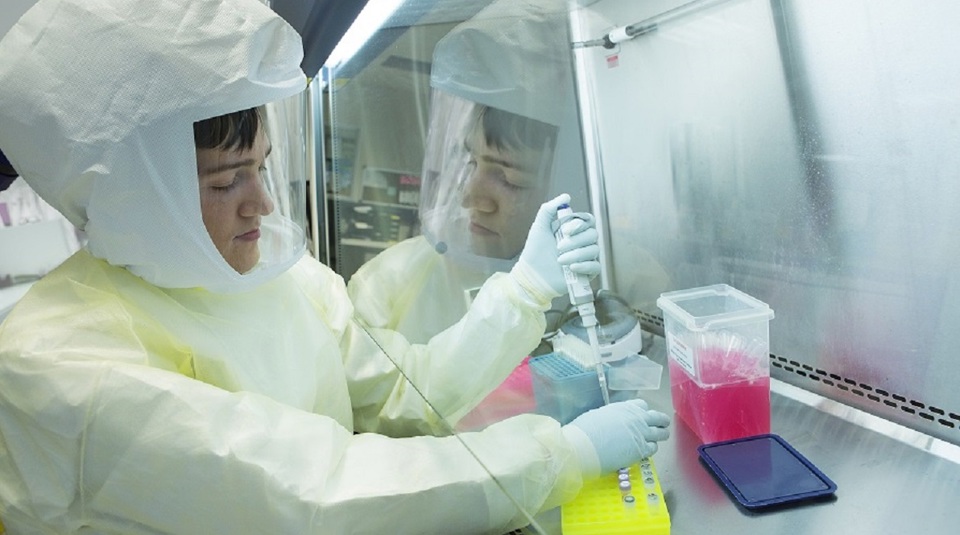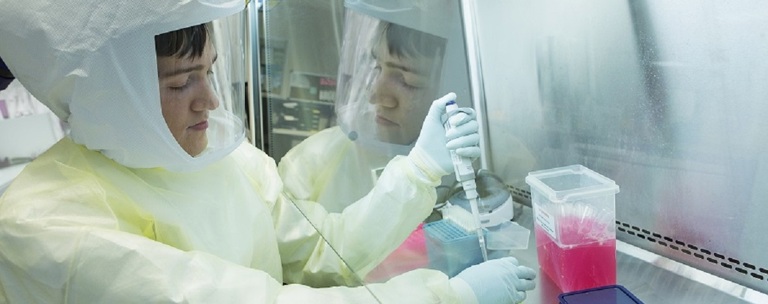Professor David Murdoch was appointed ESR Chief Scientist in January 2025, having held the role of Interim Chief Science Advisor since March 2024. He is a Distinguished Professor at the University of Otago’s Christchurch campus where he is co-leader of The Infection Group, as well as Adjunct Professor of One Health at Massey University and Senior Associate in the Department of International Health at Johns Hopkins School of Public Health.
At ESR, a significant part of our work is focused on infectious diseases. We play a vital role in safeguarding New Zealand against the growing and evolving risks they pose. This responsibility has never been more important. While the world grows weary following years of disruption from COVID-19, infectious diseases have not disappeared. Their threats remain very real — and so must our collective commitment to readiness.
Further pandemics and other infectious diseases risks are inevitable in our globally connected, rapidly changing world. Climate change, urbanisation, increased movement between people and animals and environmental degradation are creating new and evolving threats. COVID-19 was a powerful reminder of how quickly local outbreaks can escalate into global crises. It also showed that once a crisis has begun, it is already too late to build the systems needed to respond effectively.
The pandemic provided many clear lessons. Prevention, preparedness, and rapid response are the foundation of public health security. Robust laboratory and surveillance systems, integrated data analytics, and cross-sector partnerships proved essential. Countries that deployed science-informed decision-making with strong and agile political leadership fared best. Building or strengthening critical infrastructure in the midst of a crisis proved difficult.
Yet despite this experience, there is growing global concern about an emerging collective amnesia — a loss of focus on the need for future preparedness. The so-called "cycle of panic and neglect" — urgency during crises followed by complacency afterwards — remains a persistent risk. COVID-19 demonstrated that inaction comes at a cost we cannot afford to pay again.
New Zealand now stands at a critical juncture. The science sector review presents an excellent opportunity to strengthen our national science system for the challenges ahead. ESR is undergoing a deliberate transition to a Public Research Organisation (PRO), positioning ourselves as a more agile, impact-focused provider of the science that protects public health, supports the justice system and strengthens national socioeconomic resilience. This evolution directly responds to the call for dynamic, responsive and future-ready public research entities.
ESR has several key capabilities that underpin its national role in infectious disease prevention and control. Our reference laboratories provide the high-quality diagnostics essential for early detection and management of infectious threats. Our surveillance and genomics systems deliver early warnings, monitor trends and help prevent escalation. Our strengths in data science, analytics and modelling ensure that complex information is translated into actionable insights for decision-makers. Our environmental hazard monitoring programmes — across water, food and natural systems — track threats at their source, strengthening community safety.
The World Health Organization has endorsed a One Health approach, acknowledging that human, animal and environmental health are fundamentally intertwined. ESR’s work lends itself to this integrated approach, which is critical in order to safeguard public health.
These capabilities are critical infrastructure for New Zealand. Importantly, while they are vital for our work in infectious diseases, they are equally essential to our broader scientific contributions, including in forensics. Data science, analytics, and advanced laboratory diagnostics sit at the very core of everything we do at ESR.
As ESR transitions into a new PRO, we must continue to strengthen and expand our surveillance systems, ensuring the integration of human, animal and environmental health data. Our reference laboratory functions must be future-proofed so they can continue to deliver rapid, high-quality diagnostic services with agility. Ongoing support for innovation, including in diagnostic technologies, genomics, new modelling tools and incorporation of artificial intelligence, will be crucial. Building and nurturing an ecosystem of close collaboration across sectors will be key to detecting and managing emerging threats with speed and confidence. Above all, ESR must remain relentlessly focused on delivering genuine impact for New Zealand.
As a small country, New Zealand cannot afford duplication or fragmentation in infectious disease prevention, preparedness and response. We must combine expertise and resources across agencies to strengthen national capability. For ESR, this means maintaining close, trusted partnerships with government agencies, universities, and other research organisations, ensuring that science, policy, and operational response are seamlessly connected.
The true legacy of COVID-19 should be a stronger science system, trusted public organisations, and an enduring national commitment to preventing avoidable crises through preparedness, collaboration and impact.

